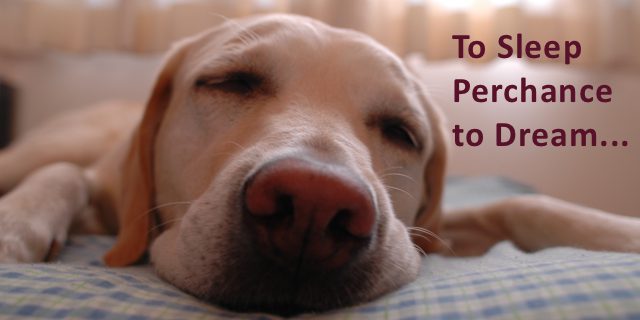“Birds do it, bees do it, even educated fleas do it… Let’s do it,” ~Cole Porter
Let’s Fall Asleep.
All right, so the song doesn’t go like this exactly but it is true that everybody–bees, birds, scorpions, dolphins and lots of other animals–sleep.
The Dangers of Sleep
 Yet if you think about it, sleeping is a pretty dangerous activity. During sleep, we are not conscious of our surroundings. And for dolphins and whales, sleeping while underwater could mean death by drowning. Marine mammals are conscious breathers—they need to think about breathing in order to do it.
Yet if you think about it, sleeping is a pretty dangerous activity. During sleep, we are not conscious of our surroundings. And for dolphins and whales, sleeping while underwater could mean death by drowning. Marine mammals are conscious breathers—they need to think about breathing in order to do it.
That’s why dolphins and whales sleep in a most ingenious way. They are uni -hemispheric sleepers. If you’ve been on a whale watch you may have seen whales logging. Logging is a whale’s sleepy time. While logging, half of their brain is asleep and the other half stays alert to ensure that they do not drown.
Human Sleep
“To die, to sleep –
To sleep, perchance to dream – ay, there’s the rub,
For in this sleep of death what dreams may come…”~Shakespeare
There are many allusions to sleep being like death. Our unconscious state notwithstanding, the paralysis that we experience during sleep may contribute to this notion.
Paralysis? Yes, during sleep, specifically REM sleep, muscle paralysis (called muscle atonia) occurs. Some believe this “defining feature” of normal REM sleep occurs to keep us from acting out our dreams. Imagine for a moment that you are dreaming about playing soccer. You kick the ball up and down the field. Without muscle atonia, you would find your sleep mate black and blue from being kicked about in bed.
Why Do We Sleep Anyway?
“People say, ‘I’m going to sleep now,’ as if it were nothing. But it’s really a bizarre activity. ‘For the next several hours, while the sun is gone, I’m going to become unconscious, temporarily losing command over everything I know and understand. When the sun returns, I will resume my life.’ ~George Carlin
There are some hypotheses about why we sleep. One researcher, Alan Pack, studies sleep  deprivation on the cellular level using fruit flies, rats and mice models. He proposes that sleeping is a time for cellular house cleaning. According to this thesis, all of our cells are composed of proteins and our cells are constantly breaking down and building up protein molecules. The process of building a protein molecule involves folding. Pack has found that sleep deprived cells are full of clumps of unfolded proteins which are toxic to the cells. Sleep provides the time for proper protein folding.
deprivation on the cellular level using fruit flies, rats and mice models. He proposes that sleeping is a time for cellular house cleaning. According to this thesis, all of our cells are composed of proteins and our cells are constantly breaking down and building up protein molecules. The process of building a protein molecule involves folding. Pack has found that sleep deprived cells are full of clumps of unfolded proteins which are toxic to the cells. Sleep provides the time for proper protein folding.
Another hypothesis is related to stages of sleep and the waves of electrical energy that are produced by the brain during those stages. There are five stages of sleep.
Stage 1 is called Light sleep. Theta waves, which have four to seven cycles per second, are the waves produced during stage 1. Stage 2 is a deeper sleep where breathing and heart rate slows and body temperature decreases. Stages 3 and 4 are deep sleep when Delta waves begin. Delta waves are the slowest ranging from zero to four cycles per second. After about 90 minutes of sleep, we go into Stage 5 or REM sleep. During REM the brain produces Alpha waves which are the same waves as when we are awake.
 The second hypothesis articulated by Dr. Giulio Tononi comes from the idea that we have a limited amount of space in our brains. While we are awake, everything that we do and everything that occurs creates a synaptic pathway in the brain. When we sleep, the electrical waves that the brain generates tone down and reduce the strength of all the synaptic pathways that have been created.
The second hypothesis articulated by Dr. Giulio Tononi comes from the idea that we have a limited amount of space in our brains. While we are awake, everything that we do and everything that occurs creates a synaptic pathway in the brain. When we sleep, the electrical waves that the brain generates tone down and reduce the strength of all the synaptic pathways that have been created.
This theory supports the phenomenon many people have experienced. Say you spent a couple of hours practicing guitar. You can’t seem to get one section right but you practice it quite a bit before you go to sleep. During sleep, different waves of electrical activity pass through your brain a thousand times a night. The synaptic strength of all the new connections are reduced with each wave of electrical activity.
When you awaken, you are able to play the section you had worked on the day before perfectly. This is because there is less background noise. The pathways that were strongest, where you had practiced guitar for example, will be easier to access.
The Take-Away
So, next time you see someone sleeping, make believe you’re in a science fiction movie. And whisper, ‘The creature is regenerating itself.” ~George Carlin
So now you know, we don’t know for sure why we sleep but we’re getting close to some answers. When you lay down tonight, remember that sleep is not just a chance to rest your weary muscles, it may be a very important brain cleaning activity. Now go get your 8 hours!





